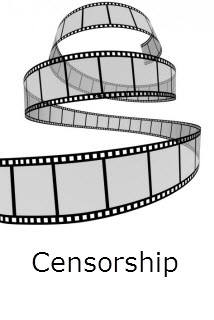Angels and Demons (2009)


Content by Tony Macklin. Originally published on May 11, 2009 @ tonymacklin.net.
Angels and Demons performs a miracle. It makes 2 hours seem like 4 hours.
Angels and Demons should thrill, but director Ron Howard's suspense has no edge or vitality. Most of it is running, panting, doggy-paddling. And sinking. Maps, keys, door, and a teabag abound. Wit and keenness don't.
Director Howard has taken his second swipe -- and misfire -- at a Dan Brown novel. Howard should have learned from his last submerging in The Da Vinci Code (2006). There's a difference between baptism and drowning.
Simply put, Ron Howard is the wrong director for Angels and Demons.
Angels and Demons needs someone like Alfred Hitchcock. Howard is an adequate director, but he has no talent for suspense. The novel is bursting with excitement; the movie just bursts.
If Angels and Demons reminds one of any Hitchcock film, it's Topaz (1969), Hitch's mediocre adaptation of the novel by Leon Uris. That's not a happy comparison.
In Howard's hands, Angels and Demons is about as exciting as a nice game of checkers.
Since Howard's The Da Vinci Code was an international blockbuster, he was the obvious moneymaking choice to direct the next movie because of the international market, even though he may fumble the material.
The Da Vinci Code is #26 on the all-time worldwide box office list at $757 million. (It's 70th all-time US box office with $217 million. Howard's biggest moneymaker in the US is How the Grinch Stole Christmas (2000) with $260 million. The Grinch is 152nd on the worldwide list.)
Howard's two movies of Dan Brown's novels reverse the order of the books' publication. Brown's first novel with symbologist Robert Langdon was Angels and Demons (published in 2000); it is Howard's second Langdon movie.
Brown's initial novel with Langdon was convoluted and garrulous, but it had exciting scenes. Brown especially knows how to end his chapters with a punch. Howard doesn't.
Brown learned how to sharpen his writing from his first Langdon book to his second. The Da Vinci Code, published in 2003, is a more deft, disciplined book.
Howard didn't learn much from his initial experience with Robert Langdon. Surprisingly, in Angels and Demons, his suspense still plods.
In Angels and Demons, symbologist Robert Langdon (Tom Hanks) is summoned by the Vatican after the death of the pope. Four cardinals -- who are the leading candidates to be elected next pope -- have been kidnapped. Vatican City is threatened with obliteration by a device of anti-matter that has been stolen by the Illuminati, an ancient secret brotherhood that hates the Catholic church.
Langdon, Italian physicist Vittoria Vetra (Ayelet Zurer) and the police try to save the cardinals, one of whom is to die each hour: when all are dead, the device will explode.
Langdon and Vittoria try to fathom clues from catacombs, crypts, churches, sculptures, and bas-relief that will lead to the Path of Illumination and the prevention of the impending cataclysm.
Edited by veterans Don Hanley and Mike Hill, Angels and Demons is discursive and distended. It's basically suspended instead of suspenseful.
Workmenlike, veteran screenwriters David Koepp and Akiva Goldsman cut and paste lines from Brown's novel. They soften the plot by allowing one of the characters who is slain in the book to live in the movie.
But their worst decision is to weaken the main female character Vittoria. They cut some of her best lines (especially powerful ones about assassination) and make her less assertive and less meaningful. It's a mistake.
The screenwriters also cut some of Brown's pithy lines about religion. Obviously they cut the geeks' heady reaction to religious assassination. Their script truncates and dulls the novel's conflict between religion and science.
Get new editors and screenwriters, Ronnie.
Tom Hanks is good, as always, as Robert Langdon, but his character is little more than a pawn on a chessboard. He simply moves forward in increments.
Actually Hanks is more of a straight-forward checkers player. As Robert Langdon, he affects a serious, earnest expression, and coasts.
Cary Grant and Jimmy Stewart had similar confining roles in Hitchcock's films, but unlike Ron Howard, masterly Sir Alfred provided clever irony and suspenseful style to empower them.
The nameless assassin (Nikolaj Lie Kaas) in Angels and Demons pales in comparison with the villain (Paul Bettany) in The Da Vinci Code. When you pale next to an albino, you're in trouble.
The actors are cast with a blurry eye to the international market: Kaas is Danish, Ayelet Zurer (Vittoria) is Israeli, Pierfranseco Favino (Inspector Olivetti) is Italian, Ewan McGregor (the Camerlengo) is Scottish, Stellan Skarsgard (Commander Richter) is Swedish, Armin Mueller-Stahl (Cardinal Strauss) is German, and so on. They make an international porridge.
Angels and Demons is a good film to look at. The cinematography by Howard-veteran Salvatore Totini is evocative -- his use of light is impressive. The locations of Vatican City and Rome offer some compelling ambience.
Recently in Tokyo to promote Angels and Demons, Tom Hanks -- who played manager Jimmy Dugan in A League of Their Own (1992) -- threw out the first pitch for a game between the Yomuri Giants and the Chunichi Dragons.
Hanks's pitch bounced several feet in front of the plate and eluded his catcher (Ron Howard) and rolled away.
I imagine that symbologist Robert Langdon would think that is an apt metaphor for the movie they were promoting.
Angels and Demons is not a bad movie; it's just a calculatedly safe one. The whole movie is capable, but without an ounce of inspiration. It's safe, commercial moviemaking -- which is Ron Howard's forte. He has cast his eye abroad.
Like a lot of religion itself, Angels and Demons should be so much more than it is.
Angels and Demons is not the Church's Sign of the Cross. It's the box office's Sign of the Gross.


